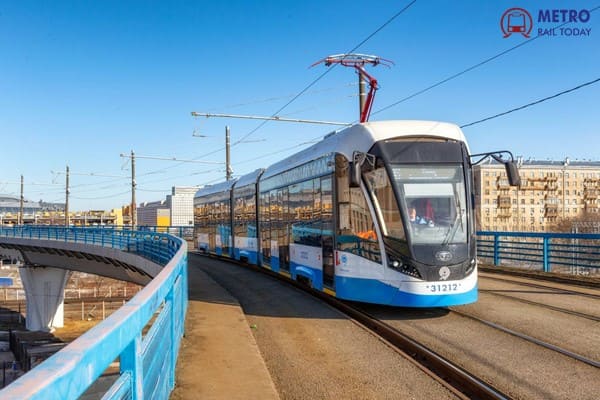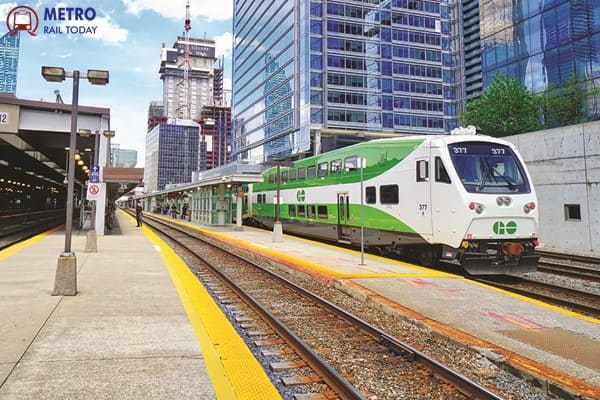 Metro Rail Today continues its legacy as Official Media Partner for 18th Urban Mobility India 2025
Metro Rail Today continues its legacy as Official Media Partner for 18th Urban Mobility India 2025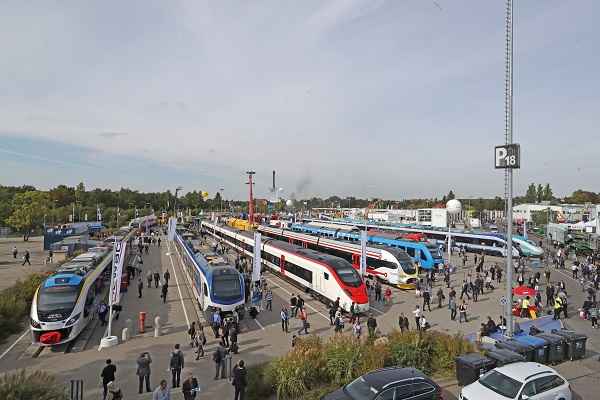 Alstom bags €1.4 billion contract from SNCF Voyageurs to supply 30 Very High Speed Trains
Alstom bags €1.4 billion contract from SNCF Voyageurs to supply 30 Very High Speed Trains Nokia and ST Engineering partner to deploy communications network on Bangkok Metro’s Orange Line
Nokia and ST Engineering partner to deploy communications network on Bangkok Metro’s Orange Line How Mumbai Built Its Deepest Aqua Line Metro Project — And Won the City’s Heart?
How Mumbai Built Its Deepest Aqua Line Metro Project — And Won the City’s Heart?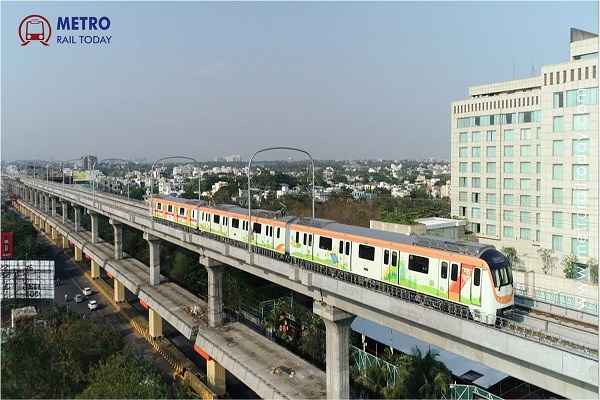 Feasibility Study begins for Sitabuldi–Koradi Metro Corridor under Nagpur Metro Phase 3
Feasibility Study begins for Sitabuldi–Koradi Metro Corridor under Nagpur Metro Phase 3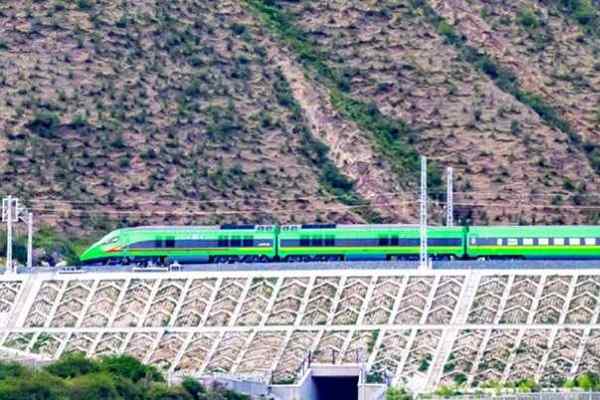 Saudi Arabia’s $7 Billion Land Bridge: Building a High-Speed Future Across the Desert
Saudi Arabia’s $7 Billion Land Bridge: Building a High-Speed Future Across the Desert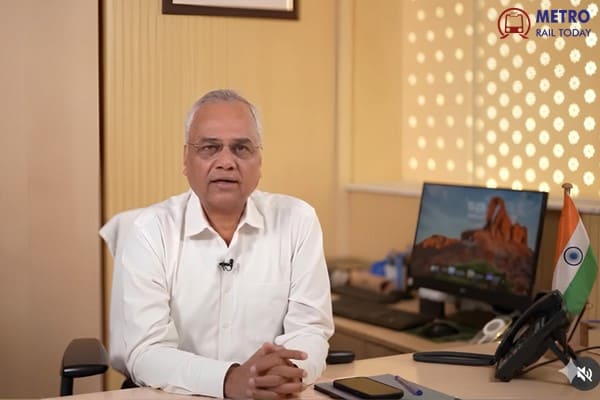 Dedicated Freight Corridors: Powering India’s Logistics Revolution and Sustainable Growth
Dedicated Freight Corridors: Powering India’s Logistics Revolution and Sustainable Growth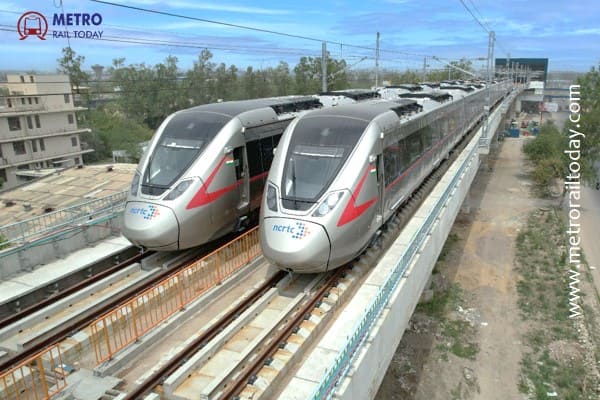 Haryana Govt approves extension of Delhi-Alwar Namo Bharat Corridor to Bawal
Haryana Govt approves extension of Delhi-Alwar Namo Bharat Corridor to Bawal Experts Call for Stronger Cybersecurity Framework in Urban Rail Systems
Experts Call for Stronger Cybersecurity Framework in Urban Rail Systems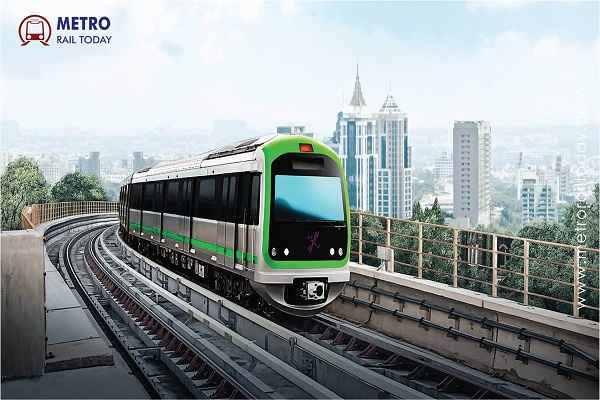 Bangalore Metro celebrates 14 years of public transport services in India’s Silicon City
Bangalore Metro celebrates 14 years of public transport services in India’s Silicon City
Nokia and ST Engineering partner to deploy communications network on Bangkok Metro’s Orange Line

Bangkok, Thailand (Metro Rail Today): In a major boost to Thailand’s railway communications infrastructure, Nokia has partnered with ST Engineering and First One Systems to deploy a mission-critical IP/MPLS-based Backbone Transmission Network (BTN) for the upcoming Mass Rapid Transit (MRT) Orange Line operated by Bangkok Expressway and Metro Public Company Limited (BEM). The project is scheduled for completion by 2030.
The collaboration aims to provide high-speed, secure, and resilient railway communications to support both operational and passenger-facing applications — ensuring safer, smarter, and more reliable train services across Bangkok’s growing urban network.
Next-Generation Digital Backbone for Railway Operations
Nokia’s Internet Protocol/Multi-Protocol Label Switching (IP/MPLS) solution will form the technological backbone of the Orange Line, enabling high-capacity, low-latency, and fail-safe connectivity for essential railway systems such as:
-
CCTV surveillance
-
Public announcements and passenger information systems
-
Radio communications
-
Supervisory Control and Data Acquisition (SCADA) systems
This deployment will significantly reduce operational complexity while enhancing network visibility, cybersecurity, and performance monitoring across the Orange Line’s entire ecosystem.
Expert Collaboration for a Landmark Project
Terdsak Kijjatikankun, Chief Executive Officer, First One Systems, said:
“We are honored to be part of this landmark project alongside Nokia and ST Engineering, contributing our local expertise and strong integration capabilities to support BEM’s vision for safer and smarter rail transport in Bangkok. Our deep understanding of the local landscape, combined with Nokia’s proven technology and ST Engineering’s system integration excellence, ensures that this mission-critical communication system will meet the highest international standards.”
Stuart Hendry, Vice President, Enterprise Sales, Network Infrastructure, Asia Pacific, Nokia, added:
“Complex and large-scale railway projects require not just deep technical expertise but also seamless collaboration across partners. Together with ST Engineering and First One Systems, we demonstrated engineering excellence and solution leadership, giving BEM the confidence to move forward with our solution for this prestigious initiative. Our strong track record and learnings from delivering similar railway projects globally enable us to anticipate challenges and deliver a world-class solution.”
About the Bangkok Orange Line Project
The 35.9 km-long Orange Line will connect Bangkok’s east and west sides, combining underground and elevated sections. Once operational, it will transform mobility in Thailand’s capital, improving passenger experience, safety, and travel reliability.
As part of the communications contract, Nokia will deploy two Backbone Transmission Networks (BTNs) with 10G and 40G capacities for ultra-fast data, voice, and video transmission between stations and the Operations Control Centre (OCC).
The system will feature:
-
Nokia 7250 Interconnect Routers
-
Nokia 7210 Service Access Systems
-
Nokia Network Services Platform
-
Comprehensive professional services for deployment, integration, and maintenance
These elements will help simplify operations, improve uptime, and provide real-time network visibility to ensure uninterrupted metro operations.
Commenting on the partnership, Mrs. Mamta Shah, MD & CEO, Urban Infra Group, said:
“The Bangkok Orange Line project exemplifies how advanced communication networks are becoming the foundation of modern metro operations. The collaboration between Nokia, ST Engineering, and First One Systems underscores the importance of integrating cutting-edge digital infrastructure to enhance safety, reliability, and passenger experience. As Indian metro systems expand, such global partnerships serve as valuable models for implementing resilient, smart, and future-ready transport ecosystems.”
With the deployment of Nokia’s advanced IP/MPLS technology, Bangkok’s MRT Orange Line will set new benchmarks in smart urban transport communications, showcasing how digital innovation can power efficient, secure, and sustainable metro systems for the future.





